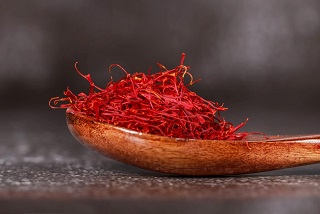Does saffron make a baby's skin fair in color?
The widely held cultural belief in certain regions suggests that saffron possesses the ability to lighten a baby's skin tone, particularly prevalent in select Asian countries. However, it is crucial to approach this notion from a well-balanced standpoint and a foundation in scientific reality.

Saffron, derived from the dried stigmas of the Crocus sativus flower, is renowned for its distinctive flavor, scent, and vivid hue. Within traditional medicine, saffron has historically been utilized for diverse purposes, including potential skin-improving properties. There exists a belief among some individuals that the application of saffron onto an infant's skin or its consumption in specific forms could result in a fairer complexion.
Nevertheless, it's imperative to recognize that concrete scientific substantiation supporting the assertion that saffron can substantially modify the inherent skin color of a baby or any individual is limited. Genetic factors, particularly the quantity and type of melanin present in the skin, primarily determine skin color. Melanin, a pigment responsible for skin, hair, and eye color, is influenced more significantly by genetics, sun exposure, and hormonal influences than by saffron's ingestion or application.
Saffron does encompass particular antioxidants and bioactive compounds, which could potentially yield positive effects on the skin. These compounds might contribute to enhancing skin texture and appearance, but they are unlikely to enact substantial alterations to a person's skin tone. Furthermore, the utilization of saffron on a baby's delicate skin has the potential to induce allergic reactions or irritations in certain instances. Thus, it is essential to conduct a patch test prior to applying any novel substance to an infant's skin and to seek guidance from a pediatrician or dermatologist before introducing new skincare regimens.
The notion that saffron can bestow a fairer skin tone upon a baby is not robustly supported by scientific evidence. While saffron does offer potential skincare advantages owing to its bioactive components, its ability to significantly impact skin color alteration remains improbable. In relation to infants, their skin is tender and necessitates specialized care. Rather than fixating on modifying skin color, parents should prioritize upholding the health of their baby's skin via appropriate skincare practices, hydration, and safeguards against detrimental environmental factors such as excessive sun exposure.
Dependence on credible scientific knowledge and consultation with medical experts is vital when deliberating over skincare choices for babies or individuals of any age. Embracing diversity and advocating self-acceptance hold far greater importance than adhering to specific beauty benchmarks or cultural misconceptions.
Reference links -
- https://www.thewellnesscorner.com/blog/can-saffron-and-milk-make-your-baby-fair-complexioned
- https://www.huggies.co.in/en-in/new-born/skin-care/baby-skin-care-regime#:~:text=Myth%205%3A%20A%20common%20belief,no%20evidence%20to%20support%20this.
